
Future of the Brain Summit 2022
Speakers, Panelists, and Moderators

Thursday, May 5, 2022, 12:00 p.m.-5:30 p.m. with dinner to follow
Friday, May 6, 2022, 8:00 a.m.-1:30 p.m.
Participate in immersive experiences, illuminating sessions, a dialogue with Nobel laureates on the future of health innovation, and a signature evening featuring dinners and conversation in some of San Francisco’s most notable private homes.
Featuring
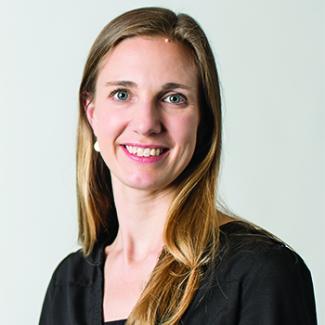
Liza Ashbrook, MD
Dr. Ashbrook is a neurologist who treats people suffering from sleep and general neurologic disorders. Her research focuses on understanding certain inherited sleep and circadian traits including waking up very early or needing much less or much more sleep than most people. One of Dr. Ashbrook’s goals is to better understand how some people are able to sleep only four to six hours a night and yet feel as restored as people who require seven to nine hours of sleep. She wants to determine whether these natural “short sleepers” are resilient to negative health consequences – such as increased risk of heart disease, diabetes, and memory problems – that typically are associated with getting too little sleep. Dr. Ashbrook earned her medical degree and did her residency at UCSF and completed a fellowship in sleep medicine at Stanford University.
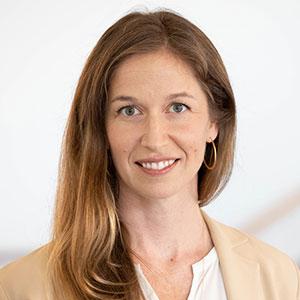
Nicki Bush, PhD
Dr. Bush is an international leader with clinical and research expertise in child and family health and well-being. Her work concentrates on children’s early-life psychological factors and social environment and the roles those play in health and disease throughout children’s lives. She examines women’s and children’s experiences with adversity, including stressful life circumstances such as poverty and exposure to violence, to see how they affect children’s developing biological stress-response systems and later mental and physical health. Dr. Bush strives to determine how to promote family and child resilience to stress and develop evidence that supports alleviating health inequity across generations. She earned her doctorate in child clinical psychology from the University of Washington and completed a postdoctoral fellowship in children’s physiologic stress reactivity and social epidemiology at UC Berkeley. Dr. Bush joined the UCSF faculty after completing a fellowship here as a Robert Wood Johnson Health and Society Scholar.
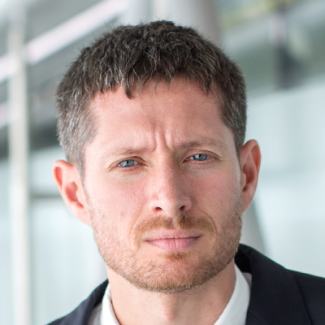
Robin Carhart-Harris, PhD
Dr. Carhart-Harris, a renowned leader in neuroscience research, focuses on advancing the science of psychedelic compounds, a class of psychoactive substances that change users’ perceptions, moods, and cognitive processes. He has designed human brain-imaging studies involving psilocybin – the compound found in psychedelic mushrooms – LSD, MDMA (ecstasy/molly), and DMT, as well as clinical trials of psilocybin for depression and other mental illnesses.
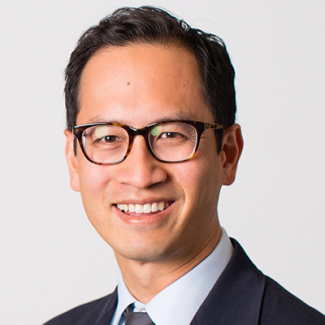
Edward F. Chang, MD
Dr. Chang’s clinical expertise is in surgical therapies for epilepsy, pain, and brain tumors. He specializes in advanced neurophysiologic brain mapping methods, including awake speech and motor mapping, to safely perform neurosurgical procedures in eloquent areas of the brain. His research focuses on the discovery of cortical mechanisms of high-order neurological function in humans. Dr. Chang’s laboratory has demonstrated the detailed functional organization of the human speech cortex and translated these discoveries into the development of a speech neuroprosthetic device to restore communication for people living with paralysis. Dr. Chang is a recipient of the 2015 Blavatnik National Laureate in Life Sciences, the Winn Prize of the Society of Neurological Surgeons, and was elected to the National Academy of Medicine and the National Academy of Sciences.
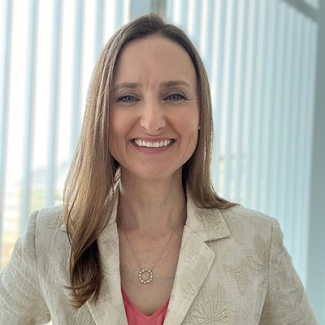
Claire Clelland, MD, PhD, MPhil
Dr. Clelland is a neurologist specializing in the care of patients with dementia and cognitive symptoms at the UCSF Memory and Aging Center. Her lab develops novel therapies for neurodegenerative diseases. Dr. Clelland’s research centers on creating novel CRISPR gene therapies for genetic forms of dementia and ALS, utilizing patient iPSCs to model disease, advanced sequencing technologies, and cutting-edge CRISPR technologies to develop first-in-class gene therapies for CNS diseases. She has developed human model systems to revolutionize how new biologics are discovered and validated. As part of this effort, she co-chairs the NIH Somatic Cell Genome Engineering Consortium Steering Committee. Dr. Clelland is the recipient of two national awards for neuroscience: the Alzheimer’s Association and NACC New Investigator Award and the American Neurological Association’s Grass Foundation Award in Neuroscience.
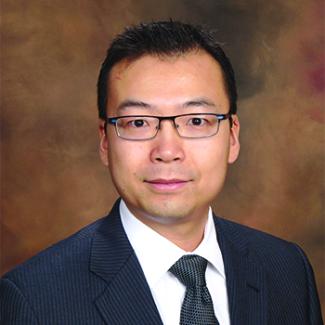
Peng Cong, PhD
Dr. Cong is an accomplished device electrical engineer with significant industry experience in engineering medical devices, particularly neural interfaces, which are electronic devices placed in or on the brain to record or stimulate brain activity. His work is aimed at addressing complex neurological disorders, including depression and impacts of stroke, using devices that interact with the nervous system. Dr. Cong joined UCSF in late 2020, and his work significantly deepens UCSF’s potential impact in the field of neuromodulation, the altering of nerve activity by applying electricity or drugs to a particular area of the brain or central nervous system. Dr. Cong previously worked for Verily, a division of Google, where he held leading positions in neuromodulation for the last six years. He also worked for the medical-device company Medtronic, where he made major contributions to neuromodulation by leading electronics platform development for next-generation, brain-interfacing implantable devices.
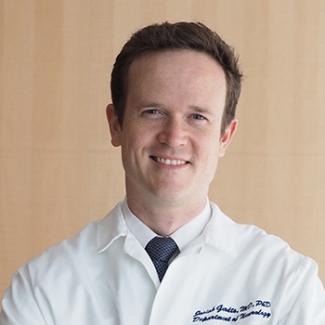
Josiah Gerdts, MD, PhD
Dr. Gerdts specializes in the treatment of neurologic disorders that affect the immune system, such as multiple sclerosis and autoimmune encephalitis. His research focuses on new cell-based technologies for identifying T-cell antigen targets involved in autoimmune diseases. Dr. Gerdts joined Wendell Lim, PhD, and his team in the Department of Cellular and Molecular Pharmacology with the goal of employing new synthetic biology approaches – using genetic engineering to give living cells new functions – to further understand and develop new tools to sense and target T cells. Their work resulted in a new strategy for detecting T-cell antigen responsiveness that Dr. Gerdts plans to refine and apply to research on neurologic diseases. Dr. Gerdts earned his medical and doctoral degrees from Washington University Medical School in St. Louis and completed an internship in medicine and a residency in neurology at UCSF, where he currently serves as a clinical fellow.
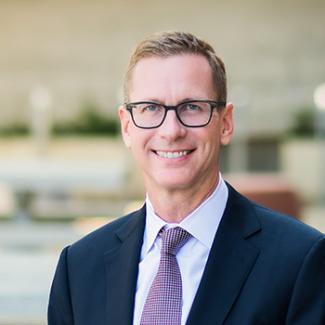
John de Groot, MD
Dr. de Groot specializes in brain and spine cancer and cares for patients with primary tumors, which are located where the disease began as opposed to where it spreads. His research includes bringing new approaches – such as immunotherapy treatments for glioblastoma, an aggressive and deadly brain cancer – from the lab into the clinic. Dr. de Groot is especially interested in using biomarkers – molecules in body fluids and tissues that may indicate the presence of disease – to evaluate the effectiveness of new therapies. His previous roles include director of clinical research and interim chair of the neuro-oncology department at the University of Texas MD Anderson Cancer Center in Houston, where he completed a neuro-oncology fellowship and served on the faculty for 17 years. He earned his medical degree from the University of Texas Medical Branch, an academic health science center in Galveston; and completed a neurology residency at Johns Hopkins University.
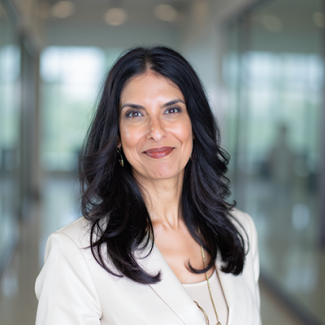
Dena B. Dubal, MD, PhD
Dr. Dubal is a physician-scientist who trained in neurology at UCSF. She leads a research program focused on longevity and brain resilience in aging and neurodegenerative diseases. Her team discovered that the longevity factor, klotho, enhances brain function, and they are now advancing this toward clinical trials. Her team also uncovered new roles for the X chromosome in aging and women’s health. Dr. Dubal’s work has been published in journals such as Nature, Nature Aging, and Science Advances and featured in the New York Times, WSJ, The Economist, and NPR. She has received multiple honors, including the NIA/AFAR Paul Beeson Award for Aging Research and the Grass Neuroscience Award. She serves in the leadership of JAMA Neurology, the Glenn Foundation for Medical Research, and UCSF’s Weill Institute for Neurosciences.
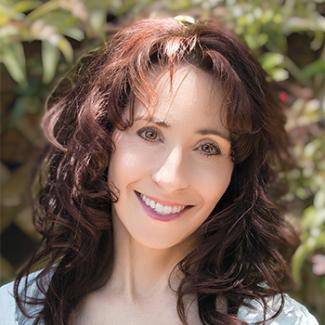
Elissa Epel, PhD
A health psychologist and renowned researcher, Dr. Epel investigates ways to remain healthy as we age. She has extensively studied the psychological, social, and behavioral foundations of chronic stress; one research area examines how people can thrive in mind and body under severely adverse conditions such as living in poverty, caring for an ill family member, or suffering from depression. Dr. Epel conducts clinical trials examining how mindfulness – the practice of paying kind attention to one’s thoughts and feelings without judging them – can affect stress, compulsive eating, and cell aging. She studied psychology and psychobiology at Stanford University and earned her doctorate in clinical and health psychology from Yale University. She leads meditation and science retreats at venues such as Esalen and World Economic Forum Davos. Dr. Epel co-authored The Telomere Effect, a best-selling book about health aging, with UCSF Nobel laureate Elizabeth Blackburn and is releasing The Stress Prescription in winter 2022.
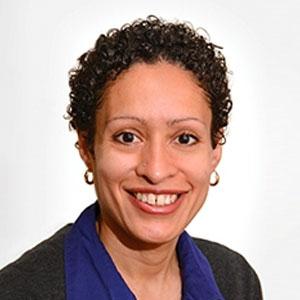
Lisa Fortuna, MD, MPH, M.Div
Dr. Fortuna specializes in psychiatry with children, adolescents, and adults who are traditionally underserved, as well as in addiction medicine. Her work spotlights community psychiatry, which seeks to provide mental health support services to people and families through community resources. She also treats and researches post-traumatic stress and substance-use disorders. For more than two decades, Dr. Fortuna has championed health equity, which is achieved when everyone has the same opportunity to reach their best state of health, and no one is disadvantaged from doing so by their social circumstances. Her work encompasses immigrant mental health, access to care, and implementation of solutions to improve the quality of care and address health care disparities. Dr. Fortuna’s research has expanded access to child behavioral health in primary care settings, and her Kids FACE FEARS study on treating childhood anxiety showed that combining online and in-person care can improve access to treatment.
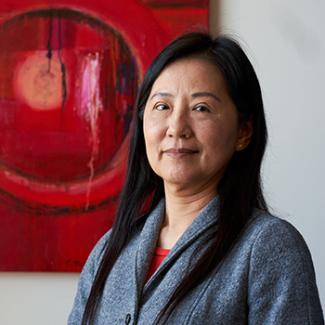
Ying-Hui Fu, PhD
Dr. Fu is a pioneer in understanding how our genes influence the quantity and quality of our sleep. She and neurologist Louis Ptáček, MD, are co-principal investigators in the Neugenes Lab, which studies human sleep behaviors, neurodegeneration, and episodic disorders including seizures, headaches, and cardiac arrhythmias. They have identified several mutations for advanced sleep phase syndrome that affect peoples’ sleep schedule behavior. Recently, Dr. Fu’s team also identified new genes and mutations that can affect sleep duration. The team is working toward a better understanding of how human sleep duration and efficiency is regulated, with the goal of helping everyone reach healthy longevity through optimal sleep. Dr. Fu earned her doctorate in molecular biology and biochemistry from The Ohio State University and then spent four years in the biotech industry at Millennium Pharmaceuticals and Darwin Molecular before coming to UCSF.

Karunesh Ganguly, MD, PhD
Dr. Ganguly is a neurologist who earned his MD/PhD from UC San Diego, followed by internal medicine and neurology residency at UCSF. During his training, he conducted research on Brain-Machine Interfaces at UC Berkeley. Dr. Ganguly is the director of the Neural Engineering and Plasticity Lab, where his research integrates neuroscience and neuroengineering to develop technologies that enhance motor recovery. His clinical expertise centers on neurological rehabilitation in patients with motor impairments. Dr. Ganguly is a recipient of several prestigious awards, including the Presidential Early Career Award for Scientists and Engineers (PECASE), the NIH New Innovator Award, and, most recently, the Outstanding Neurorehabilitation Scientist Award from the American Society of Neurorehabilitation.
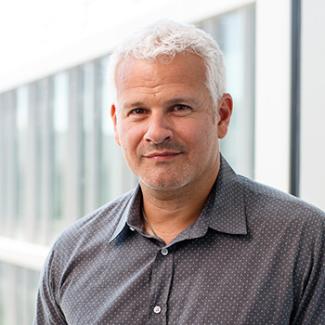
Adam Gazzaley, MD, PhD
Dr. Gazzaley leads Neuroscape, a translational (bridging the research and clinical areas) neuroscience research center. Neuroscape uses technology such as video games, wearable devices, virtual reality/augmented reality, and motion capture as tools to better understand brain function, enhance cognition, refine behavior, and ultimately improve our minds. Dr. Gazzaley’s research led to the creation of EndeavorRX, the first and only FDA-approved prescription treatment for attention-deficit/hyperactivity disorder in children that’s delivered through a video game. He is the co-founder and chief science adviser for Akili Interactive, a prescription digital-medicine company, and JAZZ Venture Partners, which invests in technologies that improve human performance. Dr. Gazzaley has served as a scientific adviser for Apple, General Electric, Nielsen, Deloitte, and many other tech companies. He wrote and hosted the nationally televised PBS special “The Distracted Mind with Dr. Adam Gazzaley” and co-authored The Distracted Mind: Ancient Brains in a High-Tech World.
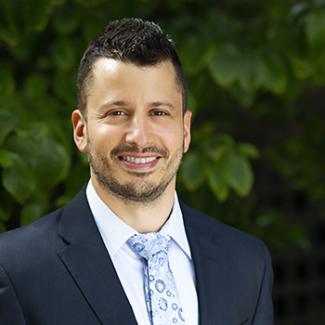
Ezequiel “Eze” Goldschmidt, MD, PhD
Dr. Goldschmidt specializes in treating patients with brain, skull base, and pituitary gland tumors. His research concentrates on developing techniques that allow surgeons to perform highly complex brain surgeries using minimally invasive approaches, including endoscopic surgery performed by accessing skull-base tumors through the nose. His recent work involves developing “bug-like” robots to advance minimally invasive brain surgery. He also studies how developmental biology can help us better understand tumor growth and assist in recovery from brain injury. A native of Argentina, Dr. Goldschmidt studied the regeneration of human dura, the brain’s outermost membrane, while earning his medical degree and doctorate at the University of Buenos Aires. He did his neurosurgery residency training and a skull-base surgery fellowship at the University of Pittsburgh Medical Center. He also completed a postdoctoral surgical fellowship in neuroplasticity, the brain’s ability to change in response to new information, at Sweden’s renowned Karolinska Institute.
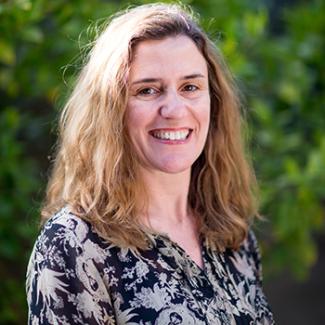
Maria Luisa Gorno Tempini, MD, PhD
Dr. Gorno Tempini is a behavioral neurologist and expert on language disorders across the life span. Her research and clinical work center on primary progressive aphasia, a neurodegenerative disorder that slowly damages parts of the brain that control speech and language; and dyslexia, a neurodevelopmental difference that affects how children learn to read and write. At the UCSF Dyslexia Center and the UCSF-UC Berkeley Schwab Dyslexia and Cognitive Diversity Center, Dr. Gorno Tempini strives to better understand the biological basis of learning difficulties and develop personalized approaches to address them. Since 2019, she has directed a California state-funded project to create a digital platform, UCSF Multitudes, for early screening and intervention of dyslexia in California public schools. She also directs the UCSF Memory and Aging Center’s Language Neurobiology Laboratory, where she investigates how neurodegenerative conditions impact language skills and brain regions and how they reorganize in response.
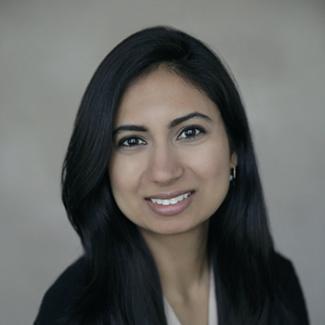
Sasha Gupta, MD
Dr. Gupta’s research specialization is engineered, cell-based therapies for neurological conditions, in particular neuro-autoimmune and neuro-infectious conditions. Her work currently is directed toward using anti-CD19 CAR T cells – a type of targeted, engineered immune cell – in lab animals to help determine potential effectiveness in multiple sclerosis. Dr. Gupta also studies antigen-specific CD8 cells – another type of targeted T cell – for use against progressive multifocal leukoencephalopathy, a devastating disease caused by a virus that targets the brain. She earned her bachelor’s degree in neurobiology from UC Berkeley and her medical degree from the Yale School of Medicine and did her neurology residency at UCSF, where she served as chief resident. Dr. Gupta is completing her third year as a research-based fellow in neuroimmunology under the mentorship of Michael Wilson, MD, and Scott Zamvil, MD, PhD.
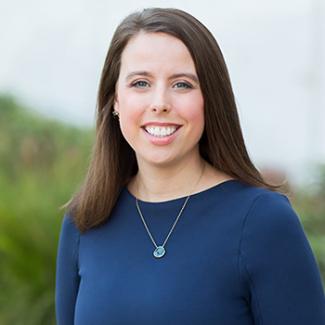
Lauren Haack, PhD
Dr. Haack is a researcher, licensed clinical psychologist, and founder of the STRIVE Lab, which uses culturally relevant strategies and technology to improve young people’s mental and behavioral health. Her goal is to improve access to quality mental health care for young people and families in diverse, underserved populations worldwide. Dr. Haack started one of the first efforts to implement and evaluate a behavioral school-based program in Latin America to improve youth attention and behavior. Her current research includes adapting an existing digital school mental health program into Spanish for Latinx youths with hyperactivity, attention, and behavior disorders in the US and Mexico. Dr. Haack collaborates on projects involving technology-based platforms including web, text messaging, and digital applications that support mental health providers and patients. She earned her master’s degree and a doctorate in clinical psychology from Marquette University and completed a clinical internship and National Institutes of Health-funded postdoctoral fellowships at UCSF.

Cathra Halabi, MD
Dr. Halabi is board-certified in neurology and vascular neurology. In the hospital, she cares for patients with neurovascular emergencies like stroke. In her outpatient practice, she established the UCSF Neurorecovery Clinic to help patients recover from brain injuries like stroke, concussion, and traumatic brain injury (TBI). She co-developed the UCSF Post-Acute TBI Program, focusing on critical early months after injury. As a clinician researcher, she aims to detail underrecognized neurological and other long-term consequences of brain injury to identify treatment opportunities. Dr. Halabi earned her bachelor’s degree in molecular, cell and developmental biology from UCLA with a minor in music history. She earned her medical degree from UCSF, where she also completed a residency in neurology, a clinical fellowship in vascular neurology, and an NIH StrokeNet research fellowship. She is an active member of the National Academies of Sciences, Engineering and Medicine Action Collaborative on TBI Care, and the NIH StrokeNet Recovery and Rehabilitation working group.
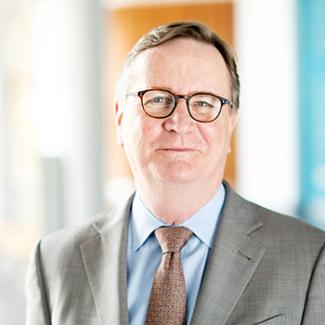
Sam Hawgood, MBBS
Sam Hawgood, MBBS, became UCSF’s 10th chancellor in July 2014. He previously served as dean of the UCSF School of Medicine and vice chancellor for medical affairs. In addition to his four-decade distinguished career at UCSF, he is renowned internationally for neonatology research. A native of Australia, Chancellor Hawgood earned his medical degree with first-class honors from the University of Queensland in Brisbane. He trained in pediatrics as a resident and specialized in neonatology as a fellow.
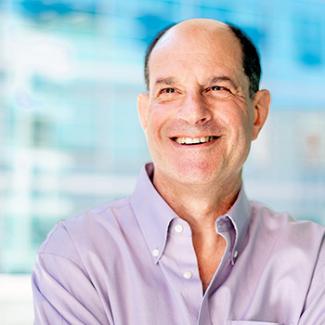
David Julius, PhD
Dr. Julius was awarded the 2021 Nobel Prize in Physiology or Medicine for his work on pain sensation. Julius’ work has focused on how our bodies sense heat, cold and chemical irritants, leading to new insights about the fundamental nature of pain and new targets for pain therapy.

Andrew Krystal, MD
Dr. Krystal has more than 30 years of experience in patient care and research. He is recognized as a world leader for his work in sleep disorders, particularly insomnia, and mood disorders. In the Dolby Family Center for Mood Disorders, scientists conduct research on deep brain stimulation for severe, treatment-resistant depression, while the UCSF Clinical and Translational Sleep Research Laboratory develops new treatments for sleep disorders and investigates the links between sleep and medical and psychiatric conditions. As director of the UCSF Interventional Psychiatry Program, Dr. Krystal explores deep brain stimulation, transcranial magnetic stimulation, and the use of the drug esketamine in clinical programs.
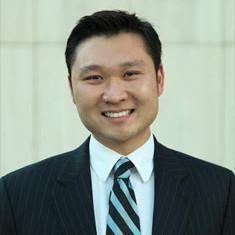
Andrew Moses Lee
Dr. Lee is a psychiatrist-scientist specializing in the treatment of patients with obsessive-compulsive disorder (OCD) and related conditions. He established the Transcranial Magnetic Stimulation (TMS) and Neuromodulation Clinic in the UCSF Department of Psychiatry and Behavioral Sciences with Andrew Krystal, MD, and Katherine Scangos, MD, PhD. The clinic uses advanced brain stimulation therapies, including TMS and deep brain stimulation, as therapies for patients with treatment-resistant mental illnesses – disorders that don’t respond to at least two different medications. Dr. Lee also runs a lab focused on understanding the brain basis of OCD and anxiety-spectrum disorders using brain imaging and recordings to identify points of intervention using novel brain stimulation-based treatments. He earned his medical degree and a doctorate degree in neuroscience at UCSF, studying the systems for habits and reinforcement affected in OCD.
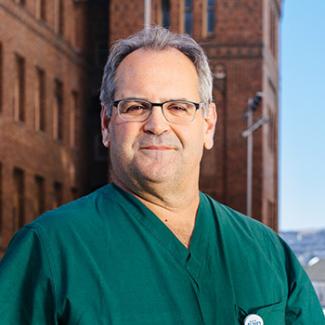
Geoffrey T. Manley, MD, PhD
Dr. Manley is an internationally recognized expert in neurotrauma. In addition to a robust clinical practice at ZSFG – a Level 1 trauma center – he coordinates and leads national and international clinical research efforts in the study of the short- and long-term effects of traumatic brain injury, or TBI. With a nationwide team of TBI experts, Dr. Manley recently launched the TRACK-TBI Network, an innovative, precision-medicine-driven consortium that will test phase II drugs for use in TBI. The TRACK-TBI studies have created a modern precision-medicine information commons for TBI that integrates clinical, imaging, proteomic, genomic, and outcome biomarkers. This information could propel the development of a new TBI disease-classification system that would revolutionize diagnosis, direct patient-specific treatment, and improve outcomes.

Bruce Miller, MD
As a behavioral neurologist whose work emphasizes brain-behavior relationships, Dr. Miller has reported on the emergence of artistic ability, personality, cognition, and emotion with the onset of neurodegenerative disease. Additionally, he helps lead the Tau Consortium, the Bluefield Project to Cure Frontotemporal Dementia, the UCSF Parkinson’s Spectrum Disorders Center, and the Global Brain Health Institute. He has been awarded the Potamkin Award from the American Academy of Neurology and elected to the National Academy of Medicine.
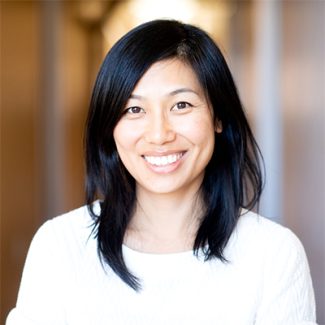
Fumi Mitsuishi, MD, MS
Dr. Mitsuishi has committed her career to public service in support of mind, body, and social wellness. Born in Japan, raised in France, and educated in the United States, she appreciates living at the intersection of cultures and the experience of “otherness.” She views medicine as a window into our complex humanity and specializes in the science of systems change. She was the director of Citywide Case Management (Citywide), leading 200 interdisciplinary staff annually serving 2000 patients with serious mental illness. Citywide provides an alternative to institutionalization through wrap-around behavioral and social services. Dr. Mitsuishi studied neuroscience and history of art at UC Berkeley, earned an MS in health sciences at UC Berkeley, and her medical degree at UCSF. She completed her residency training in psychiatry and a fellowship in public psychiatry at UCSF. She uses her understanding of interpersonal and group dynamics to make systems change possible and elegant. She believes that unconditional positive regard for others and data-driven interventions can minimize stigma, social conditions such as homelessness, and suffering.
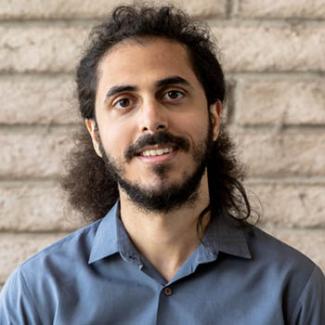
David Moses, PhD
Dr. Moses focuses on new ways to decode speech from the brain activity of a clinical-trial participant who cannot speak on his own. He manages and coordinates projects for the lab of Edward Chang, MD, that are part of the BRAVO clinical trial, which has the long-term goal of developing “speech neuroprostheses” to restore communication to severely paralyzed patients who cannot speak. Dr. Moses also maintains the software used to enable real-time translation of brain activity into speech, which he originally developed while pursuing his doctoral degree. Along with other members of an interdisciplinary team of speech neuroscientists, machine-learning engineers, and clinical research coordinators, Dr. Moses is helping create new methods for decoding speech from the brain activity of clinical-trial participants who can’t speak. In a first-of-its-kind breakthrough, Dr. Moses and his team demonstrated that these methods could be used to reliably identify words that a participant was trying to say in real time directly from his brain activity.
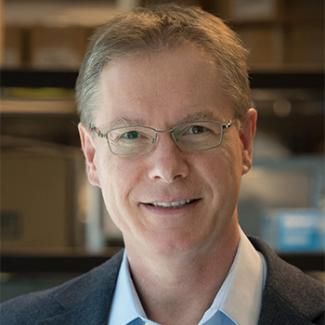
Lennart Mucke, MD
Dr. Mucke studies processes that cause memory loss and other major neurological deficits, especially Alzheimer’s and related neurodegenerative diseases. His goal is to advance the understanding of nervous-system disorders so better treatments can be developed to prevent, control, and reverse them. Dr. Mucke has discovered how molecules called amyloid beta peptides and tau can alter the activity of brain cells and interfere with memory even when they are not part of visible protein deposits that form in the brains of people with Alzheimer’s. His ongoing research focuses on how these molecules interfere with memory and how they interact with other factors to influence the risk of Alzheimer’s, the patient’s age when the disease begins, and its severity.
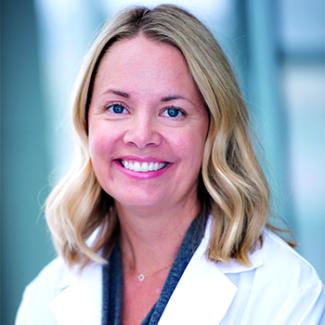
Jill Ostrem, MD
Dr. Ostrem is an internationally recognized neurologist specializing in Parkinson’s Disease, dystonia, and essential tremor. She is a leader in advancing the diagnosis and treatment of movement disorders, with a research focus on experimental therapeutics and innovations in neuromodulation. Her work has significantly shaped the field of deep brain stimulation, a surgical therapy that uses implanted electrodes to regulate abnormal brain activity. Since joining UCSF in 2003, Dr. Ostrem has helped build one of the world’s leading centers for clinical care, research, and education in movement disorders. Under her leadership, the center is recognized internationally for its excellence in medical and surgical treatments, cutting-edge research, and commitment to training the next generation of specialists.
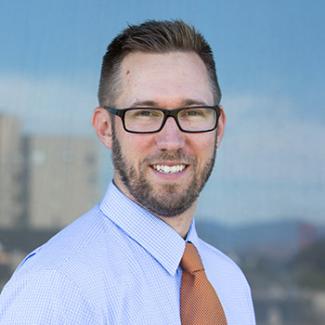
Aric A. Prather, PhD
Dr. Prather describes himself as a “diehard sleep evangelist but sleep-deprived father of two.” A psychologist, he treats people with insomnia using individual cognitive behavioral therapy, a type of treatment that relies on behavioral and psychological techniques to improve a patients’ sleep quality. Most recently, his work has focused on understanding how sleep enhances the immune system, including the role sleep plays in mounting an effective response to vaccination. Dr. Prather measures sleep in the laboratory and in the real world to determine which study participants are vulnerable to sleep-related health problems and which are resilient, with the goal of developing new treatments.
Dr. Prather earned his doctoral degree in clinical and biological health psychology from the University of Pittsburgh. He did a clinical psychology internship at Duke University Medical Center then came to UCSF through a two-year fellowship in the Robert Wood Johnson Foundation Health and Society Scholars program.
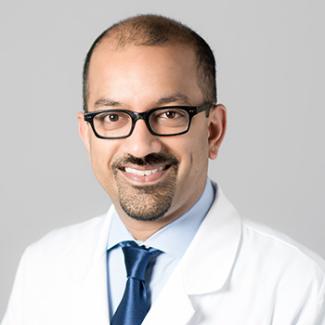
Vikram R. Rao, MD, PhD
Dr. Rao is a neurologist who specializes in using medications, surgery, and implanted neurostimulation devices to care for people with epilepsy. His research involves using direct brain electrical recordings and implanted devices to monitor patterns of brain activity and better understand how abnormal patterns cause seizures. He also uses those tools to explore the cognitive dysfunction and mood disorders – such as anxiety and depression – that are common in people with epilepsy. One way Dr. Rao treats patients is by using patterns of brain activity to forecast their seizure risk several days in advance and giving them a warning before they have a seizure. Dr. Rao earned his medical degree from UCSF, completed his residency at Massachusetts General and Brigham and Women’s hospitals, and returned to UCSF for a fellowship in clinical neurophysiology.

Megan Richie, MD
Dr. Richie specializes in treating hospitalized patients with neurological disorders including strokes, seizures, Guillain-Barré syndrome, multiple sclerosis, and delirium. She also manages less common neurological conditions, such as transverse myelitis (inflammation in a section of the spinal cord), status epilepticus (seizures lasting more than 5 minutes), infectious encephalitis, and autoimmune encephalitis. Dr. Richie earned her medical degree and completed her residency in neurology at the University of Pennsylvania’s Perelman School of Medicine. She came to UCSF to complete her neurohospitalist fellowship before joining the UCSF Neurohospitalist Division in 2016. Dr. Richie also is deeply involved in medical education. She founded the UCSF Master Clinician Flexible Residency Program and an outpatient lumbar-puncture clinic for neurology residents. She also currently serves as the neurology clerkship director for UCSF medical students.
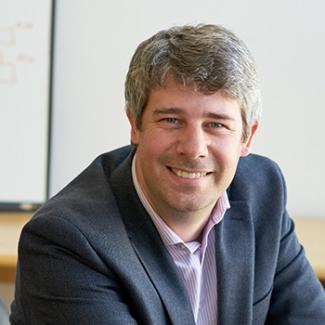
Stephan Sanders, MBBS, PhD
Dr. Sanders is a geneticist and pediatrician who specializes in the genetics of childhood neurodevelopmental disorders, particularly autism spectrum disorder (ASD). His research uses genomics and bioinformatics – a field that combines biology, statistics, and computer science – to understand the causes of developmental disorders and develop gene-therapy approaches. Dr. Sanders’ lab has identified hundreds of genes and genetic mutations associated with autism and works to understand how these impact brain development. He also studies how brain development differs between females and males to understand why autism is more common in males. Dr. Sanders trained as a pediatric physician and earned his medical degree at Nottingham Medical School in the UK before earning his doctoral degree and doing his postdoctoral research at Yale University under Matthew State, MD, PhD, now the head of UCSF’s Department of Psychiatry and Behavioral Sciences.

Katherine Scangos, MD, PhD
Dr. Scangos is a psychiatrist and neuroscientist with an interest in developing novel therapies for neuropsychiatric conditions. She conducts quantitative circuit-based neuroscience research to identify electrophysiologic biomarkers of mood disorders and new forms of responsive brain stimulation therapies. She led a clinical trial of personalized closed-loop deep brain stimulation for treatment-resistant depression. She also is currently a medical director at Neumora Therapeutics, where she works to integrate multimodal biomarker development into clinical trials on a large scale. Dr. Scangos earned her medical and doctoral degrees from the Johns Hopkins University School of Medicine. She completed a postdoctoral fellowship at UCSF and developed a biomarker of major depression based on recordings from the surface of the brain.
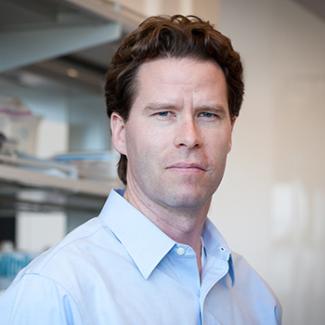
William W. Seeley, MD
Dr. Seeley graduated from UCSF medical school and completed a neurology residency at Massachusetts General and Brigham and Women’s hospitals in Boston. He then came back to UCSF for a behavioral neurology fellowship with Bruce Miller, MD, and developed expertise in caring for patients with dementia and other forms of neurodegeneration. Dr. Seeley began to question how events that occurred at the molecular level could target such small subsets of the brain’s roughly 86 billion nerve cells. This biological problem, referred to as selective vulnerability, became the center of his research, especially as it relates to dementia, Alzheimer’s, and other age-related neurodegenerative diseases. The goal of his research is to determine what makes certain brain cells susceptible or resistant to disease, with an eye toward translating these findings into novel treatment approaches.
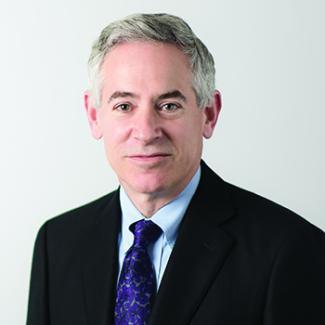
Philip Starr, MD, PhD
Dr. Starr obtained his MD and PhD from Harvard Medical School. He completed his neurosurgical residency at Brigham and Women’s Hospital and a fellowship in movement disorders surgery at Emory University with Drs. Roy Bakay, Jerrold Vitek, and Mahlon Delong. He came to UCSF in 1998 to launch a clinical and research program in deep brain stimulation (DBS). Dr. Starr and UCSF neurologist Dr. Jill Ostrem are the directors of a multidisciplinary clinic for comprehensive care of patients with movement disorders. His research addresses brain network abnormalities underlying motor and nonmotor features of movement disorders, therapeutic deep brain stimulation mechanisms, and the use of totally implantable neural interfaces for long-term brain recording and adaptive DBS.
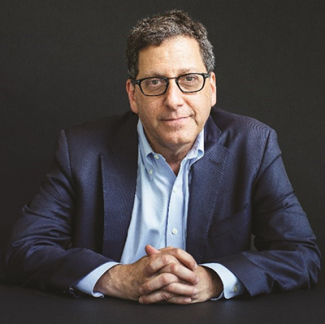
Matthew W. State, MD, PhD
Dr. State is an internationally known child psychiatrist and human geneticist. Over the past 20 years, his laboratory has contributed to major advances in the genetics and biology of developmental neuropsychiatric disorders, including autism spectrum disorder and Tourette disorder. Along with a handful of other laboratories, Dr. State’s research group has been a leader in demonstrating the central role of rare, spontaneous mutations to ASD and TD. In collaboration with Nenad Sestan, MD, PhD, at Yale, the State lab has also pioneered the use of systems biological approaches to identify key aspects of the cellular and developmental characteristics of ASD pathology, identifying the role of human mid-fetal cortical excitatory neurons in the etiology of the syndrome. Under his leadership, the UCSF Department of Psychiatry and Behavioral Sciences has championed collaboration across the neurosciences and expanded research, clinical services, and advocacy, including overseeing the construction of the Nancy Friend Pritzker Psychiatry Building and the Joan and Sanford I. Weill Neurosciences Building. He has received numerous awards, including a Distinguished Citizen Award from the Commonwealth Club of San Francisco, the Ruane Prize from the Brain and Behavior Research Foundation, and the Rhoda and Bernard Sarnat International Prize in Mental Health from the US National Academy of Medicine. He was elected a National Academy of Medicine (NAM) member in 2013.
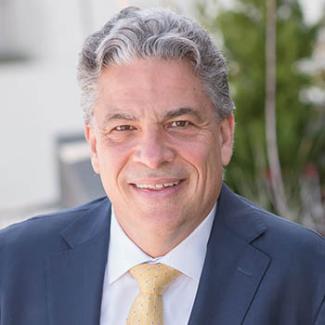
David Stull
Mr. Stull is president of the San Francisco Conservatory of Music (SFCM). During his tenure, the Conservatory has launched a dynamic new curriculum that prepares artists to seize opportunities in the modern economy while equipping them for lifelong success in any endeavor. Mr. Stull previously served for nine years as dean and professor of brass studies at the Oberlin Conservatory of Music. Before Oberlin, he worked for the Aspen Music Festival, held dean and teaching positions at Lawrence University, and served as the associate director of admissions for The Juilliard School. A professional tubist, Stull has performed with the Milwaukee Ballet, the Bravo Colorado Music Festival, the Oberlin Brass Quintet, the American Brass Quintet, the Aspen Festival Orchestra, and Live from Lincoln Center. Mr. Stull earned degrees in tuba performance and English literature at Oberlin College and a master’s degree in music at the University of Wisconsin at Madison.
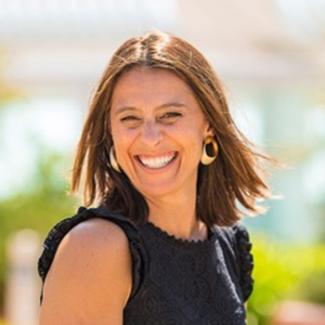
Marina Tolou-Shams, PhD
Dr. Tolou-Shams, a child clinical psychologist, has more than 20 years of experience developing evidence-based mental-health, substance-use, and sexual-health interventions for youths and their families who have interacted with the justice, child welfare, or foster care systems. She and her Juvenile Justice Behavioral Health Research Team investigate how to improve access to behavioral health care and results for these young people; their vision is to achieve brain-health equity for all children and families. Dr. Tolou-Shams also serves as principal investigator of several National Institutes of Health-funded clinical trials in this area, including identifying ways technology can improve outcomes and determining effective trauma-responsive interventions – those that anticipate the potential for trauma, rather than just taking it into account during treatment – particularly for girls in the juvenile justice system. Dr. Tolou-Shams earned her doctorate in clinical psychology from the University of Illinois at Chicago.
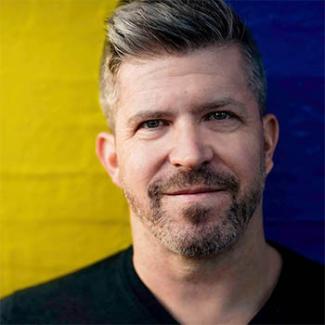
Edwin Outwater
Edwin Outwater currently serves as the music director of the San Francisco Conservatory of Music. He works with orchestras and institutions around the world, producing, curating, and conducting unique concert experiences. He frequently premieres new works and connects audiences with repertoire beyond the mainstream. Recent wide-ranging projects include collaborations with Renée Fleming, Yo-Yo Ma, Wynton Marsalis and the Jazz at Lincoln Center Orchestra, John Lithgow, and Metallica. Mr. Outwater has a long association with the San Francisco Symphony. He regularly conducts and curates their SoundBox series, and has conducted and hosted “Holiday Gaiety,” an LGBTQ holiday concert he created with drag performer Peaches Christ. Previously, Mr. Outwater was music director of the San Francisco Symphony Youth Orchestra and led them on a highly acclaimed European tour. He also served as the San Francisco Symphony’s director of summer concerts. Mr. Outwater is music director laureate of the Kitchener-Waterloo Symphony, where he returns regularly.
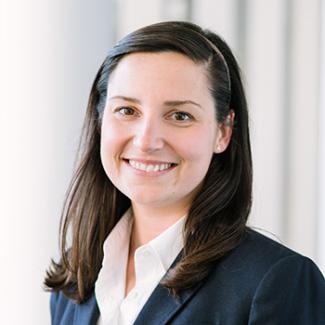
Helen Willsey, PhD
Dr. Willsey researches how genes associated with autism spectrum disorder function during neurodevelopment and how we can harness those functions to design therapeutics. To identify these mechanisms, she has developed a high-throughput Xenopus tropicalis frog platform, manipulating frog genes and rapidly studying many autism spectrum disorder genes at the same time. By mutating many large-effect autism genes in parallel using CRISPR genome editing and then screening small molecules, she can identify resiliency pathways to counter the effects of gene mutations. Her work has pinpointed forebrain neurogenesis as a potential critical process in autism and estrogen signaling as a potential mitigating pathway. Dr. Willsey earned her doctoral degree in genetics at Yale University and did her postdoctoral work at UC Berkeley and UCSF.
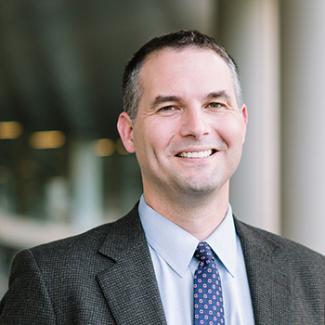
Michael R. Wilson, MD, MAS
Dr. Wilson is a neurologist who specializes in infectious and autoimmune diseases of the central nervous system, including meningitis, encephalitis, and multiple sclerosis. His research involves using genomic technologies to enhance our understanding of the development of multiple sclerosis, and to identify unique causes of autoimmune and infectious brain inflammation. Dr. Wilson’s laboratory uses genetic and immune sequencing techniques and antibody discovery technologies to uncover the causes of these diseases. He earned his medical degree from UCSF and completed his neurology residency at Massachusetts General and Brigham and Women's Hospital, and a fellowship in neuro-infectious diseases at Mass General. He completed a postdoctoral fellowship in metagenomics at UCSF.
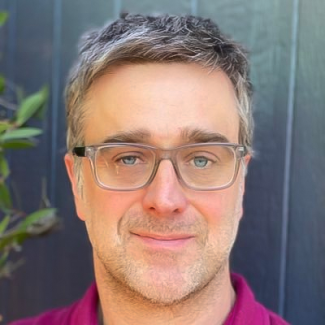
Joshua Woolley, MD, PhD
Dr. Woolley is a physician and neuroscientist who directs UCSF’s Translational Psychedelic Research (TrPR) Program. The program brings together multidisciplinary scientists and care providers to learn how psychedelic compounds affect the brain and other organ systems. Currently, the TrPR Program conducts mechanistic clinical trials examining psychedelic therapy for depression, bipolar disorder, Parkinson’s disease, and chronic pain.
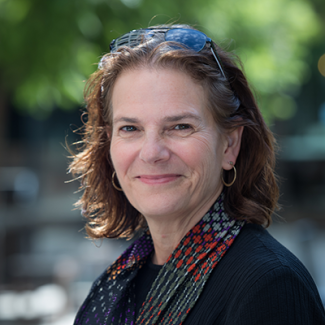
Kristine Yaffe, MD
Dr. Yaffe is an internationally recognized expert in the epidemiology of dementia and one of the foremost leaders in identifying modifiable risk factors for brain health and dementia. Dr. Yaffe and her colleagues were the first to determine that potentially 30 to 40 percent of dementia risk is preventable. Her work has formed the cornerstone for dementia prevention trials worldwide. In recognition of these groundbreaking accomplishments, Dr. Yaffe has received the American Academy of Neurology’s Potamkin Prize for Alzheimer’s Research, the NIH Robert S. Gordon, Jr. Award in Epidemiology, and the Department of Veterans Affairs John B. Barnwell Award for Clinical Research. Dr. Yaffe was elected to the National Academy of Medicine in 2019.